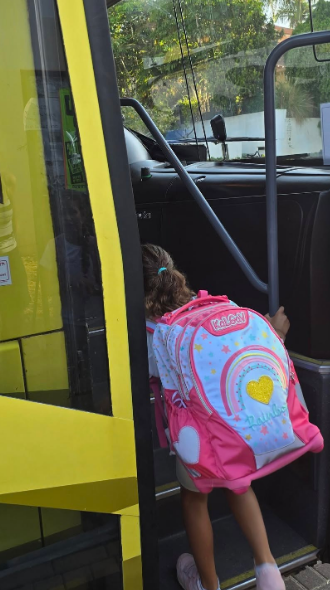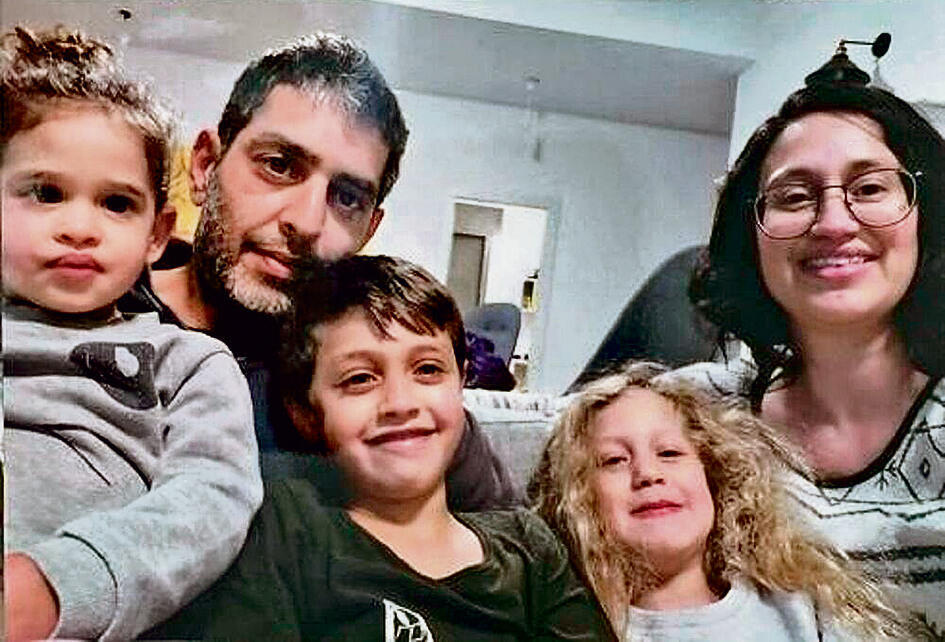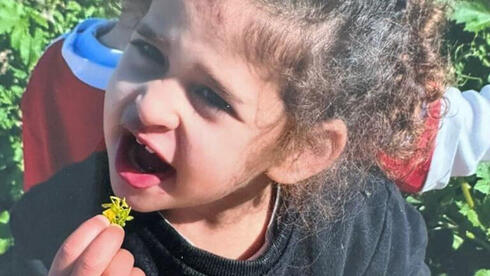When we hear the word victory, certain images come to mind. The FIFA World Cup Trophy lifted high in front of billions of viewers. An Olympic gold medal hung around the champion’s neck. The Wimbledon Trophy raised triumphantly on Centre Court as spectators leap to their feet. We imagine champions like Messi, Jordan, Federer and Phelps – figures so legendary that they need no introduction.
But this week, I was struck by a very different image of victory. One that puts all the other medals, trophies, and records to shame. It was a photograph of a six-year-old girl getting on the bus for her first day of school.
3 View gallery


Abigail Edan, a 6-year-old Israeli-American who was held hostage in Gaza for 50 days after Hamas’ Oct. 7, 2023 attack, boards a school bus on her first day of first grade, Sept. 1, 2025
(Photo: from Instagram)
Nearly two years later, she is stepping onto a yellow school bus with her ponytail bouncing, backpack slung over her shoulders. No fanfare. No roaring crowd. Just a quiet, everyday moment captured on camera.
But why do I consider this moment such a profound victory?
The timeless wisdom of the Torah offers an answer. In this week’s portion, Ki Teitzeh, when describing the laws of war, the Torah uses the following words: “Ki Teitze L’Milchama Al Oyvecha.” (Deut. 21:10). Most English translations say “When you go out to war against your enemies.” But the Hebrew words “Al Oyvecha“ literally translate to “over” or “above” your enemies.
The Lubavitcher Rebbe explained the reasoning behind this curious word choice. In a battle, when two sides are on the same level, the fight is endless and no side wins. Only when one side rises “above” the other, particularly in the realms of strength, spirit and conviction, can victory be secured.
The same applies to our internal conflicts. When we struggle with our negative inclination (the Yetzer Hara), unless the positive inclination has an overwhelming advantage, it’s easy to succumb to our negative impulses. It’s only when we tap into the infinite power of our soul, described in Hasidic texts as “an actual part of G-d” – we then draw on a power that is transcendent and unstoppable, ensuring victory.
Abigail’s story represents this triumph of spirit. On October 7, Israel’s enemies sought to destroy the Jewish people. Yet here is a child who persevered: alive, smiling, carrying a lunchbox, living her life to the fullest. Not just for herself, but indeed for her murdered parents. For this little girl, each act of normalcy is a greater accomplishment than any world record.
Because ultimately, true victory isn’t an athlete hoisting up a trophy or winning a championship. It’s in the tiny moments when a 6-year-old gets on the bus, ready to start a new school year.
3 View gallery


The Edans – Roy and Smadar with their children Abigail, Michael and Amalia
(Photo: Courtesy of the family)
It lies in continuing to strive when all hope seems lost, in maintaining dignity when the world tries to strip it away, in the quiet refusal to be broken and beaten.
According to New York Times columnist Thomas Friedman, the key to Israel’s strength is in its ability to bounce back from tragedy. He noted that immediately following a terror attack, within just an hour, workers have already begun cleaning up the streets, repainting the sidewalks and repairing the broken buildings. Throughout our people’s long history of persecution, after each attempt a nation made to expel or eradicate us, we proudly and joyfully bounced back, rising like a lion in full splendor.
As we approach Rosh Hashanah, may we recognize that true victory lies with each of us, in our indomitable resolve to pick ourselves up each time we get knocked over. Victory lies in our commitment to try again this year, despite the previous year’s shortcomings. This is our secret to survival, and we continue to stay strong for many years until the coming of Moshiach.

